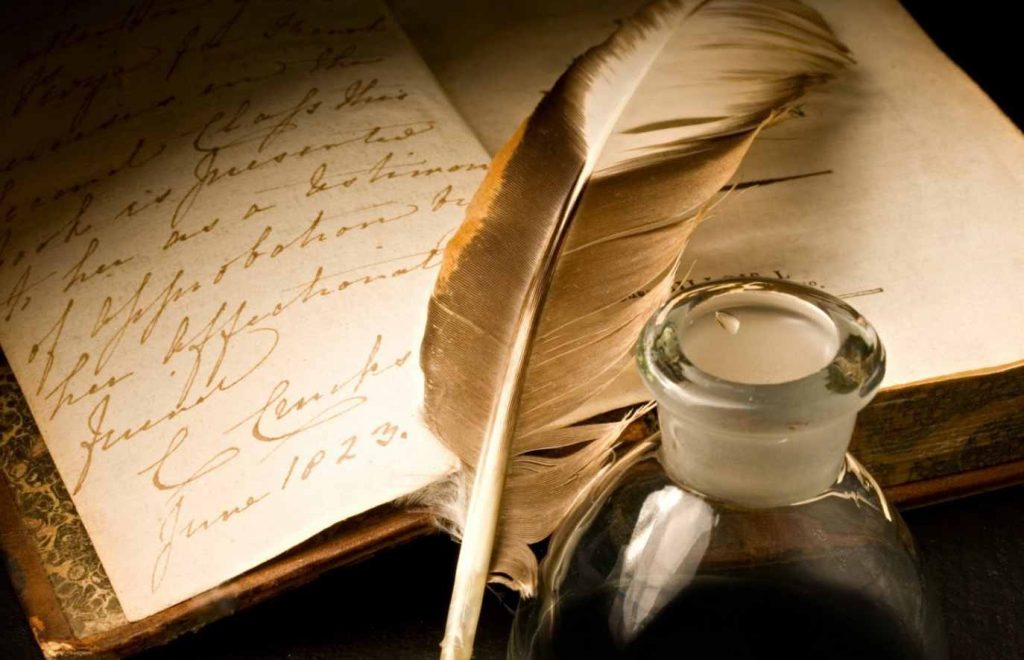To
become successful, today’s novice writer needs an average of about 10 years of
hard work and a lot of ambition. Writing does not have as many strict rules as
working in the public sector, which requires a certain amount of work
experience, a resume submission form and a federal cover
letter. You can even combine the writer’s occupation
with work in another field.
But
even if your career as a writer did not work out, you should not despair. There
are many examples of prominent people who found themselves in literature,
although they were building a different career.
Philosophers,
writers, artists – here we prepared the listing of famous people who had a law
degree or even worked in their specialty, but the whole world found out about
them in a completely different role. And it’s great that at that time there was
no that many writing services like this https://federalresumeguide.com/5-best-legal-resume-writing-services/ After all, circumstances could have been
such that we would never have known about their genius.
One
of the most famous lawyers in the world is Johann
Wolfgang von Goethe. A student of Leipzig
University became a certified lawyer in 1771. For four years he was engaged in
legal practice, and simultaneously published the novel The Suffering of Young
Werther (1772) and the historical drama Goetz of Berlichingen (1773).
Among
the failed lawyers there are many world-famous writers. One of the most
striking is Honore de Balzac. In
1816, he entered the Paris School of Law and, as a student, began to work as a
law firm, and after that, with a family friend, notary Passet. But the plans of
Balzac’s parents to make him the heir to the law office failed – in 1819 he
decided to become a writer, and he succeeded. However, the work of a lawyer did
not go without a trace – the everyday life of lawyers is described in his
works.
Another
writer with legal education is Maurice Meterlink, known for the play
“The Blue Bird”, was born in the family of a wealthy notary. He
graduated from the Faculty of Law of the University of Ghent and in 1885
received the right to practice law. This did not work, but in 1911 Maurice
Meterlink became a Nobel Prize in Literature.

Charles Perrault graduated from the
university, but took private law classes for three years, after which he
received a law degree and bought a lawyer’s license. However, by profession, he
did not work long and soon became a clerk with his brother-architect Claude
Perrault. Charles published his most famous fairy tales – “Cinderella”,
“Sleeping Beauty”, “Blue Beard”, “Puss in Boots” under the name of the son of
Pierre d’Harmancourt to separate them from other, much less well-known literary
works of his authorship, which he himself considered more significant.
Another
Nobel laureate in literature, Gabriel
Garcia Marquez, also studied law, in 1946 he entered the University of
Bogota. But even in the years of study, he became interested in literature and
journalism and eventually dropped out of school.
Jules Verne, the son of a lawyer,
received a bachelor’s degree in 1846, and a law degree in 1849. At this point,
he managed to move from his native Nantes to Paris solely out of a desire to do
theater. Vern, who chose law under the pressure of his father, did not rush to
work in his specialty. An attempt to work in a notary office is unsuccessful –
it takes time from literature. An alternative is the banking service and
preparing students for admission to law school. After the opening of the Lyric
Theater in Paris, Jules becomes his secretary.
Henry Fielding, one of the founders
of the realistic novel, has a significant place in the history of law
enforcement: using his powers as a judge, he, together with his brother John,
created the famous London police unit of the “snoop” from The Street Street
(The Bow Street Runners). In 1728, he went to Leiden to study classical art and
law at the university. But there was no money and after two years of study I
had to return to London. To earn money, Fielding began to write for the
theater, which attracted the attention of the authorities. So, the result of
his work is the Theatrical Censorship Act of 1737, which actually forbade
joking on political topics from the stage. Because of this, Fielding left the
theater and continued his career in law. By that time he was married and had
two children: in order to support his family, he enrolled as a student in
Temple and in 1740 received the title of lawyer. In 1748, Fielding became the
Chief Justice of London. In parallel, his literary career also advanced.
According to historian M. Trevelyan, they were the best judges in London in the
eighteenth century and did a lot to improve the judicial system and prison
conditions. Although John Fielding was blind, he succeeded his older brother as
Chief Justice and became known as the “Blind Beak” from Bow Street for his
ability to independently identify criminals by their voices. In January 1752,
Henry Fielding took up periodicals.
Franz Kafka received his
doctorate in law from Charles University in Prague. After university, he became
an official in the insurance department, where he worked until his retirement
(due to illness) – 1922. Kafka said that as a lawyer you can penetrate
everything: it is not surprising, because for thirteen years of work he
investigated and inspected insurance cases.